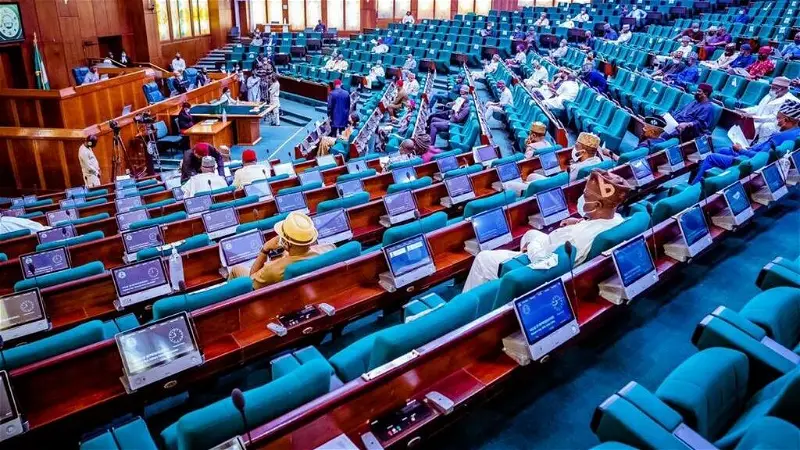
Reps move to reduce powers of CBN Governor
•Pass bill to separate positions of board chairman from governor
ABUJA-A bill to create the position of Chairman of the Board of the Central Bank of Nigeria, separate from the position of the governor, scaled second reading in the House of Representatives yesterday.
Sponsor of the bill, Francis Waive, who spoke at plenary in Abuja, said there was need to amend Section 6 to separate both positions, so the governor could be checked and not have all the powers.
The bill also proposed that in the event of the need for currency swap or naira redesign, as witnessed from late last year to early this year, the bank would be directed to call in its notes or coins, subject to a notice of not less than one year.
”This amendment reinforces the need for adequate time for the notice of change of naira notes before exercising the power to call in the old notes,” Waive said.
He said the proposed amendment to Section 6 of the Central Bank of Nigeria Act represented a significant step toward strengthening the governance structure of the CBN.
He said the amendment, which sought the differentiation between the Chairman of the Board and the Governor, introduced a level of independence, oversight, and accountability that is essential for the effective functioning of the CBN.
The amendment to Section 6, he said, aligned with international best practices and demonstrated a commitment to transparent and prudent monetary policy management.
“The proposed amendment introduces a crucial change in the composition of the CBN’s Board of Directors as outlined in Section 6 of the Principal Act. The proposed amendment adds a new paragraph, Section 6(2)(a), which mandates that the Chairman of the Board shall be a Former Governor of the CBN, a former Chairman of the Bank, or a former Managing Director of a bank.
“This provision introduces an essential shift by requiring the Chairman to have a background outside of the current leadership of the CBN. Secondly the amendments also provide for the separation of the Chairman of the Board from that of the Governor. Importance of a Distinct Chairman,” he said.
Speaking on other areas of amendment, Waive said: “Amendment to Section 7 (1): Day-to-Day Management and Accountability. The proposed amendment to Section 7 (1) of the Principal Act addresses the day-to-day management of the Central Bank of Nigeria, CBN.
”This amendment states that ‘Section 7 (1) the Governor or in his absence the most senior Deputy Governor shall be in charge of the day-to-day management of the Bank and shall be answerable to the Board for his acts and decisions.’
“This is opposed to the current provision which gives the Governor the power to choose which of the Deputy Governors to act in his absence.
”This amendment clarifies the chain of command within the CBN, ensuring that the governor or the most senior deputy governor takes on the role of managing the bank’s daily operations. This allocation of responsibility minimizes ambiguity and ensures efficient decision-making.
“The provision that the Governor or Deputy Governor is accountable to the Board for their actions strengthens oversight. It enhances the Board’s role in reviewing operational decisions and ensures that such decisions are aligned with the broader objectives of the CBN.
“Amendment to Section 8 (3): Determination of Salaries. The proposed amendment to Section 8 (3) of the Principal Act addresses the Governor and Deputy Governors of the CBN subject to the approval of the Revenue Mobilization and Fiscal Commission and not the Board of the Bank.
“Section 8 (3) The salaries or allowances including pension and other allowances payable to the Governor and to the Deputy Governors shall be as stipulated, from time to time, by the Revenue Mobilization Allocation and Fiscal Commission subject to approval of the President Strengthening Fiscal Accountability”
“Amendment to Section 16: Exchange Rate Mechanism. The proposed amendment to Section 16 of the Principal Act addresses the determination of the exchange rate of the Naira. The amendment states that; ‘The exchange rate of the Naira shall be determined, from time to time, by a suitable mechanism devised by the Bank for that purpose, provided that such rates shall at all times be uniform throughout the country both at the Bank,Commercial Banks or any such persons licensed to carry on the business of Bureau De Change.”


